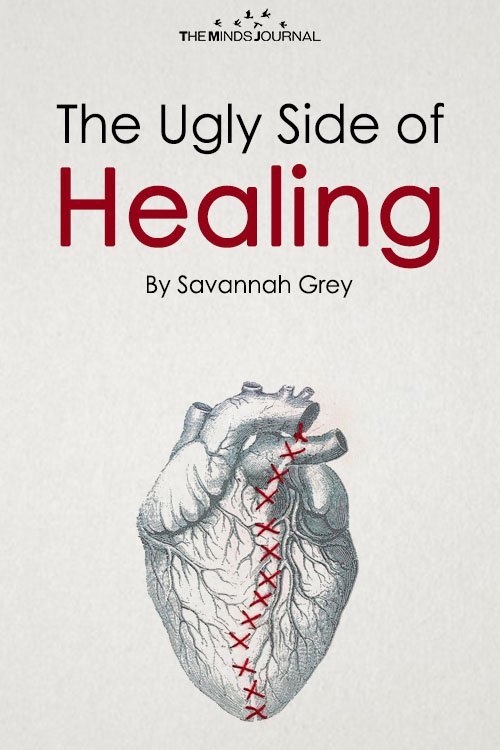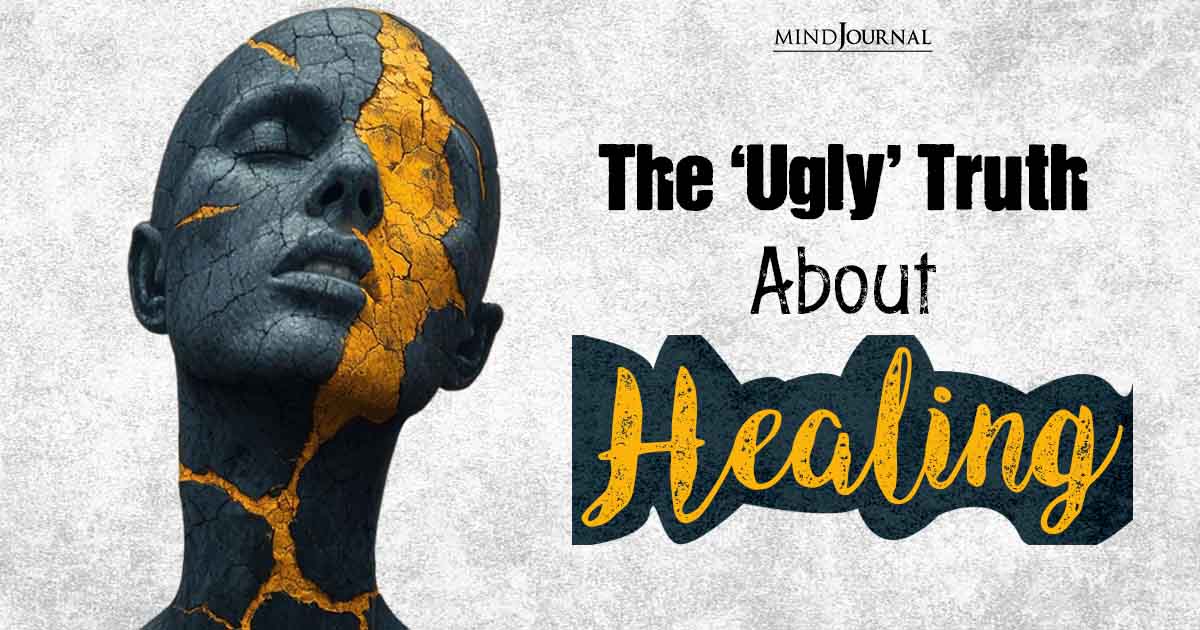Healing is a double-edged sword. It can bring out the best in you, but it can also bring out the worst in you. Here is the truth about healing and how it really affects you.
Healing isn’t for the faint of heart. It’s hard work. In fact, it’s up there, amongst the hardest work you will ever do in your life.
Most people have spent their lifetimes hiding from their childhood trauma. Dredging it up from the recesses of your memory and reliving it, are not really on most people’s to-do list.
When most people think about healing they think of meditation, inner peace, and sitting in the lotus pose in complete calmness, chanting, “Ohmmmmm.” That is the end goal, hopefully, but there is an aspect of healing that most people don’t talk about. The path to getting there, to finding your peace, is rattled with pain, anguish, doubt, and fear.
As many people take the initial steps on the path it isn’t always quite as blissful as they imagined and many turns back to the toxic lifestyle they know and are comfortable with.
The truth is, the path to healing is terrifying. You will feel like you are walking around all by yourself in no-mans-land. It’s isolating and full of despair.
As you weave your way through it you’ll find out many things about yourself, you’ll also find a strength that you never knew you possessed.
I’ve compiled a list of common elements people experience on their way to healing.
Here Is The Truth About Healing
1. Feeling Lost
When you don’t know where you’re going, or what you should be doing, only that you have to keep moving, it’s a terrifying place to be. It’s uncomfortable and unfamiliar. You will often look around you and see that others seem so together and you’re a hot mess, whose whole life has just been one colossal mistake after another.
All you know is that staying where you are is not an option. This is one of those places where you have to put on your warrior outfit and battle through. Keep looking for answers and you’ll find the path.
Related: 3 Steps to Healing from Betrayal
2. Having A Death Wish
A lot of people report taking huge risks with their safety and their lives at this stage. They feel like it doesn’t matter if they live or die and that no one would really miss them anyway. They feel that being here, being alive, is so painful and they start to think about what it would be like to not exist anymore.
This isn’t necessarily thoughts of suicide, as they are not directly thinking about taking their lives, though they are engaging in high-risk activities where the outcome could indirectly result in their death, such as driving too fast or recklessly, consuming drugs and alcohol is dangerous quantities, or engaging in activities that they wouldn’t ordinarily if they were in a different state of mind.
3. Feelings of Isolation
When you find yourself at the crossroads, you’ve very likely isolated yourself from others or been isolated by an abusive partner and you feel like you have no one in the world. You feel stuck at home like you can’t do anything or go anywhere – mainly because you have no one to do it with.
This is a dangerous place to be and you will have to force yourself to go out and socialize with people. Start reforging old connections that you may have lost and look for new ones. Having a support group and activities to take your mind off of things is essential on your road to healing.
4. Addiction Withdrawal
As many try to get over their toxic ex they find themselves experiencing addictive-type withdrawal symptoms.
Like a drug addict wishes they didn’t have a dependence on the substance and know its not good for them, so too does a victim of abuse, cognitively know they are better off without their ex, yet like the drug addict, there are many systems, both physiologically and psychologically that keep them fixated on their old relationship.
One will become obsessed with thoughts of what he or she is doing, who are they doing it with, do they want me back, are they thinking of me?
They stalk their social media accounts, play detective, and do everything they can to put the pieces together of their day-to-day activities. They drive themselves crazy with the belief that their ex is happily dating someone else and has forgotten all about them.
These thoughts are so painful and so powerful that they trigger those base core fears of not being good enough, not being worthy of love, and a fear of abandonment. They can drive you so out of control that you find yourself doing drive-bys, playing detective, and looking for any reason to justify breaking no contact.
5. Loneliness
You feel like you can’t move forward, and you can’t go back. Your ex is not an option, yet you can’t date anyone else because a) You’re not ready and b) You believe that you’re still in love with them.
You haven’t gotten to the place where you can meet your own needs, you’re not comfortable being alone and you‘re still seeking external validation, so you miss having someone there.
The thinking is that just having someone to care about them or at least pretend to care, is better than being alone, regardless of how damaging the relationship may be.
Related: 11 Simple Ways To Feel Less Lonely In Life
6. Feelings of Pain and Fear
I remember walking around my neighborhood, I forced myself to go out and be around people, but everywhere I went I traveled with this ginormous ache in my chest. I was so heartbroken. Pain and fear were my only companions. I hadn’t felt good in so long I’d forgotten what it felt like.
I saw people laughing and having fun and I envied them so much. I wanted people around me. I wanted to be loved and cared for, but I had to battle through this feeling.
7. Depression
I can recall moments early on in my healing where I just wanted to stay in bed and hide under the covers. I remember lying there and just staring at nothing. Everything felt so hopeless. I’m happy-go-lucky by nature and being in this space was so uncomfortable.
I had to battle my way through this feeling. Though it really helped spur me into action because being there, in such pain, was worse than the thought of changing.
The road to healing isn’t smooth, it’s full of bumps, curves and seemingly, never-ending twists and turns. It takes someone with a monumental amount of strength to do the work and battle these heavy emotions.
You won’t be the same person going out, that you were going in. Throughout this journey, you learn a lot about yourself, who you are, what got you here, and where you need to go next.
Related: 5 Ways To Help Someone Who Is Dealing With Depression
One of the greatest gifts I received along the way, was inner peace. It’s sacred and I am constantly reminded of the price I had to pay to acquire it. I protect it and I don’t allow anyone or anything to take it from me. I can tell you, in all honesty, I wouldn’t trade any of it for 1000 lifetimes with my ex.
I solved the riddle of my life, I healed my childhood wounds and I found self-love. These things are worth the fight – I gave up a toxic relationship, dependence, pain, fear, and self-loathing for calm, peace, joy, happiness, and autonomy. I’d say that’s a win.
Share your thoughts on recovery. How is your road to healing – rocky or smooth?
Written by Savannah Grey Originally appeared on Esteemology.com











Leave a Reply